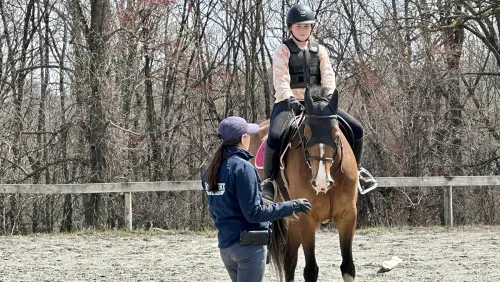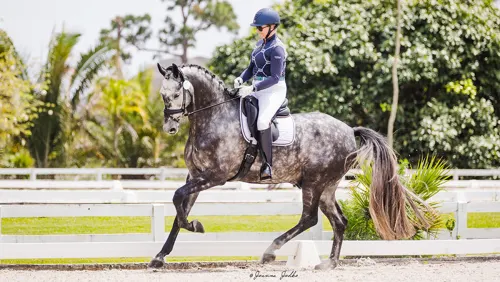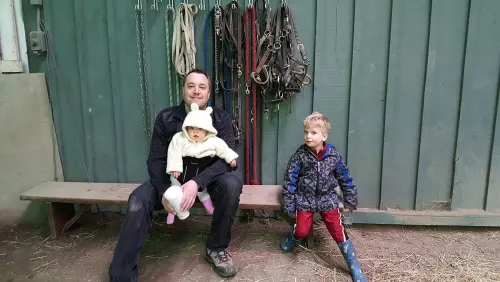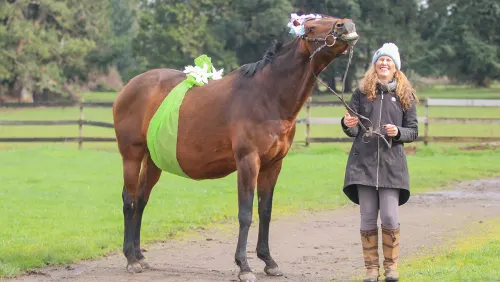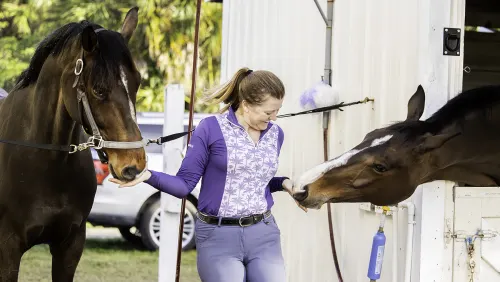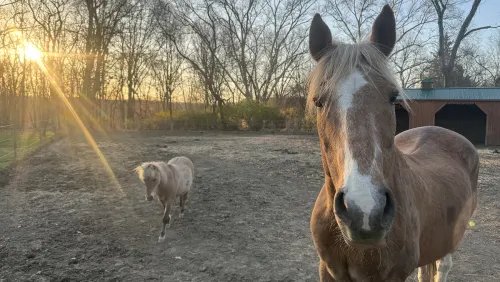As I researched and wrote the article “Lottery Funding Was Just The Start Of British Success In London” for the Sept. 10 issue of the Chronicle, I found myself both excited and wistful. That issue, which should be in your mailbox imminently, has multiple articles dissecting the U.S. teams’ poor performances across the board at the London Olympic Games. I was excited because I found it fascinating how the British support their riders and horses, at mulitple levels. And wistful, because they have funding sources for those efforts that the United States doesn’t.
There is no easy answer as to how to revitalize the teams the United States sends to international championships. And everyone connected with the teams at London is asking themselves tough questions that might not have any answers, much less easy ones.
One concept that came up again and again when people talked to us about the Olympic disappointments was that the teams were “under-horsed.” McLain Ward talked about how hard it has become to find and buy talented young horses, since everyone in the world is doing the same thing. And since riders with extensive financial backing, such as those from Saudi Arabia, can pay exorbitant prices, the market has gotten ridiculously expensive. When McLain spoke to me, I thought of an article I’d read online about European dealer Stevie Macken, who agreed with McLain. “When everybody is looking for the same [horse], it drives the prices up,” Macken said.
U.S. riders aren’t the only ones worried about where their next equine superstars are coming from. After the flurry of horse sales preceding the Olympic deadline of Dec. 31 last year, Belgian rider Ludo Philappaerts went public with a plan to keep talented Belgian horses under Belgian ownership. He’s thinking ahead to the 2016 Olympic Games and looking to make sure that horses that might serve the Belgian team well there don’t get snapped up by other teams. The article reveals that the Dutch have implemented a similar plan, and a French stud acted to help keep Kevin Staut’s ride Silvana under him.
That’s why the British World Class Program’s Equine Pathway was so intriguing to me. The Brits are trying to act proactively to keep young equine talent for the future. If you have a 5-year-old with a glimmer of greatness, you can present him to the Equine Pathway program. If included into the Pathway, the horse’s progress will be monitored and guidance given to optimize his development. I think it’s really interesting that an essential part of this program is to encourage the owners of young horses to retain them. The owner of a talented 6-year-old can be proud that his horses is on the Pathway, and he or she might be more inclined to turn down a sales offer because they see the possibility of future success for the horse.
It seems like here in the United States, so much of planning for the future focuses on riders, not horses. And if being under-horsed is a problem for our team riders, shouldn’t we also turn our eyes to the four-legged talent we have?
ADVERTISEMENT
Just after the Olympic Games, I spoke to grand prix rider Candice King for an article. It’s telling that two horses she brought up to the grand prix level competed in London for other countries—she’d shown both HH Rebozo and Davos up to grand prix before they were sold to Brazilian and Saudi Arabian owners. What if those horses had stayed here in the United States?
I know that U.S. Eventing Chef d’Equipe Capt. Mark Phillips alerted U.S. Equestrian Federation officials to the British Equine Pathway program. USEF Managing Director of Eventing, Sara Ike, told me that they’re very interested in the program and plan to look into it.
Each Olympic discipline in the United States definitely has young horse programs in place, but they’re primarily focused on competition, not development. A rider with a horse on the British Equine Pathway has access to multiple sources of training guidance, coaching, veterinary and shoeing advice, and help with competition planning. Here in the United States, a rider has to actually make a Developing Riders list or a team to get that kind of backing.
Of course, we can’t just up and adopt the Equine Pathway; it’s part of an incredible network of support the BEF has created for their teams. And it costs money, just like everything does. But if a big part of our team problems is the quality of horses available, doesn’t it make sense to start thinking about how we can make the most of the equine talent we have?







